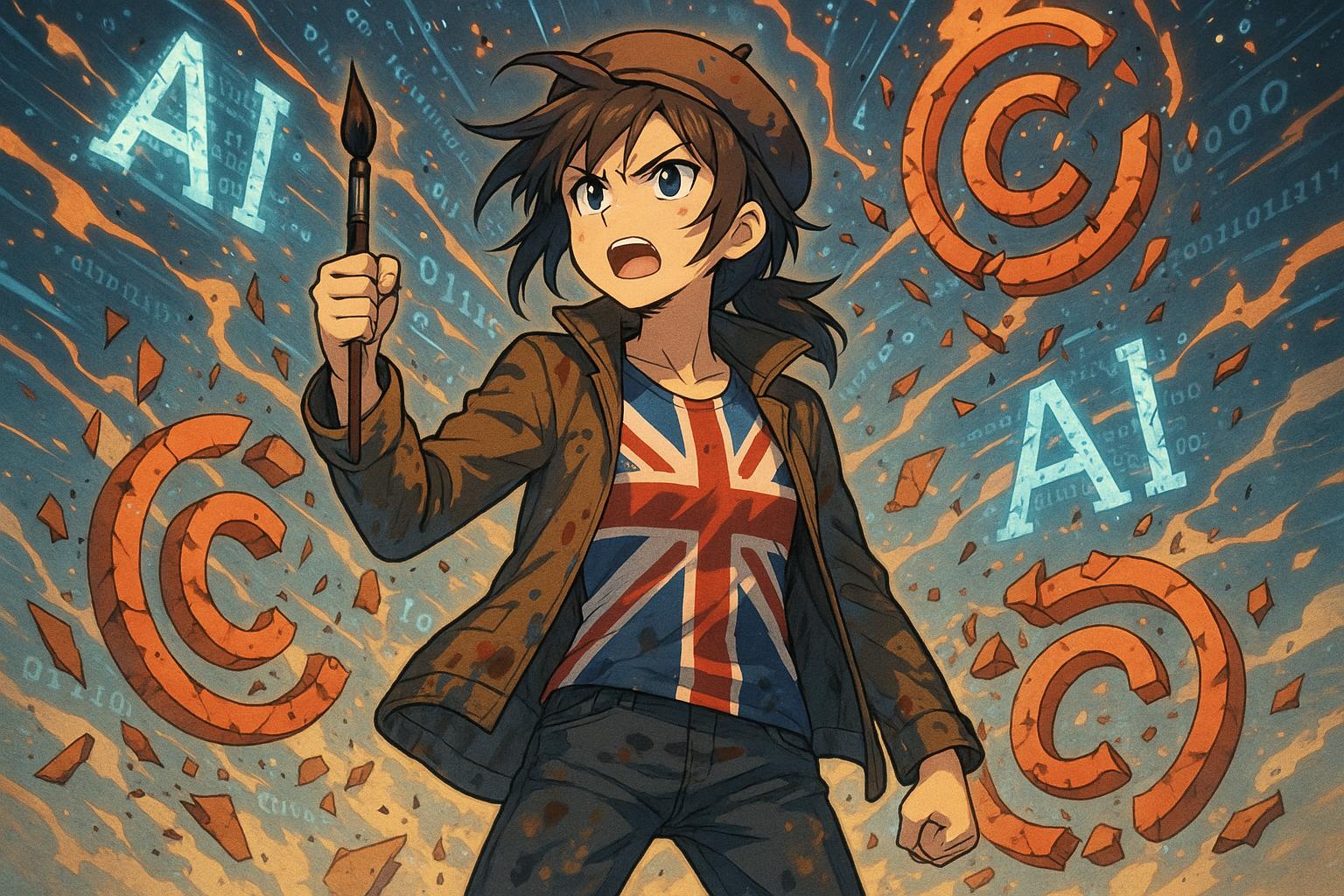For months, stalwarts of the UK’s creative industries—from music icons to literary figures—have rallied against a controversial proposal from the new Labour government that poses a serious threat to copyright protections. A government consultation aims to regulate artificial intelligence with a concerning bias toward allowing AI companies to exploit copyrighted work by default unless creators actively opt out. This alarming initiative raises profound worries, as many artists lack the necessary transparency to know who is using their work, when it’s being used, and for what purpose. Critics argue that without adequate safeguards, this proposal effectively legalises theft, unraveling the very foundation of creative rights.
Elton John, among others, has vehemently opposed these changes, stating, “The government have no right to do this to my songs. They have no right to do it to anybody’s songs, or anybody’s prose.” His sentiments resonate deeply within the creative community, which fears that this legislation will jeopardise their livelihoods and the vibrancy of artistic expression across the UK. The implications for young and emerging artists are particularly troubling, considering that such individuals often lack the financial and legal means to stand against corporate giants.
In response to these alarming developments, members of the House of Lords sought to introduce emergency transparency measures in the data (use and access) bill currently making its way through Parliament. These amendments were intended to ensure copyright owners can identify when, where, and how their work is exploited by AI. However, they were ultimately dismissed by the government, which appears determined to push its agenda forward regardless of the mounting dissent within the creative community.
Amidst these concerning developments, the Secretary of State for Technology, Peter Kyle, conceded in a recent session that “much content has already been used and subsumed by AI models, usually from other territories and under the current law.” This admission exposes the troubling reality that, despite claims of consultation and oversight, government policies are alarmingly misaligned with the interests of creators. The rhetoric pledging support for the creative sector rings hollow amid widespread opposition from numerous artists, including bands and solo musicians who have protested through a collaborative album titled Is This What We Want?. This unique project, featuring silent tracks recorded in studios, symbolises the impending loss of creativity and control over their works.
The creative industries are vital to the UK economy, contributing approximately £126 billion and employing over 2.4 million individuals. This sector has outpaced the overall economy in growth, underscoring its importance. However, the unchecked practices of AI present an existential threat to these achievements. With calls for a visionary industrial strategy, robust government policies must be adopted to protect artists while fostering responsible AI innovation. The government’s move to relax copyright laws disproportionately favours large tech companies at the expense of individual artists, a decision many in the industry deem shortsighted.
Paul McCartney has also expressed his concerns, asserting that the government should safeguard the rights of creators to maintain a fair balance between artistic integrity and technological advancement. These sentiments resonate powerfully across the creative community, where many fret about the long-term repercussions of the proposed changes. As the consultation period nears its conclusion, the stakes have never been higher, with the future of Britain’s artistic legacy hanging in the balance.
Looking ahead, the data (use and access) bill is set to return to the House of Lords on 2 June. While the Labour government may boast a strong majority, the increasing pressure from influential voices within the creative sector indicates that this battle is far from over. A nation that disregards its storytellers and artists risks losing not only its cultural identity but also its status as a global leader in creative innovation. The fight for the future of copyright in the age of AI continues, highlighting the ongoing tension between progress and preservation in an increasingly digital landscape.
Source: Noah Wire Services
